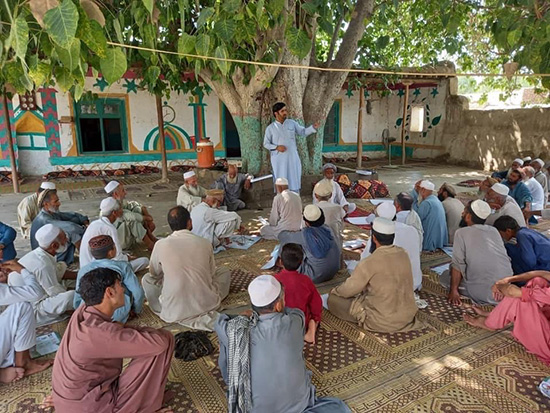
4 August 2022 – A new wave of dengue fever has been confirmed in Afghanistan with a total of 64 cases reported between 12 June and 30 July 2022 from Nangarhar province only, with no associated deaths. Of the 64 reported cases, 47 (73.4%) were female, and all were over 5 years of age.
“Afghanistan is already battling a mix of complex humanitarian emergencies because of the ongoing conflict, recurrent natural disasters and disease outbreaks,” said Dr Luo Dapeng, WHO Representative in Afghanistan. “Although the reported number of dengue cases can still be managed, we need to take urgent action to prevent further spread and minimize its impact on the country’s health system and on the limited number of health workers.”
Leading the response to the ongoing dengue outbreak, WHO is providing technical support to the activities of health authorities and partners, which includes surveillance, deployment of rapid response teams, case management, laboratory, risk communication and community engagement and provision of medical supplies. An entomology and surveillance field mission of WHO experts is ongoing to boost the dengue fever outbreak response in Nangarhar province.
WHO has distributed 2000 dengue fever rapid diagnostic tests, and 7020 Gravitraps for vector surveillance and vector control activities in highly-affected districts in the province. Also, 1000 kgs of larvicides have been procured and are under delivery to the affected sites.
Additionally, WHO, in collaboration with health authorities, has conducted a series of capacity-building workshops, targeting over 550 health workers at different health facilities in Nangarhar province.
Outbreaks of dengue fever have emerged sporadically in Afghanistan. The first outbreak was reported in 2019 in the Eastern region of Afghanistan with only 15 cases. However, by September 2021, the disease had resurfaced, infecting 775 people and killing one in Nangarhar province only. The last cases of this outbreak were reported on 2 January 2022.
About dengue fever
Dengue fever is an emerging mosquito-borne disease with potentially severe public health impact. Prevention is the most effective approach to reducing the risk of dengue infection, as there is no specific treatment for the disease. The main methods of controlling or preventing the transmission of dengue virus aim to combat the mosquito vector through the following actions:
Preventing mosquitoes from accessing egg-laying habitats by environmental management and modification.
Disposing of solid waste properly, removing man-made habitats, and covering, emptying, and cleaning domestic water storage containers.
Applying appropriate insecticides to outdoor water storage containers that cannot be cleaned.
Use of personal and household protection such as mosquito repellents, window screens, long-sleeved clothing, mosquito nets and insecticide treated materials, coils, and vaporizers. Mosquito repellents should be applied to exposed skin or to clothing.
Increasing community awareness, improving community participation, and mobilization for sustained vector control.
Spraying insecticides during outbreaks as an emergency vector-control measure.
Active monitoring and surveillance of vectors, with deployment of vector surveillance tools.
Careful clinical detection and management of dengue patients can significantly reduce mortality rates from severe dengue.
Useful links








